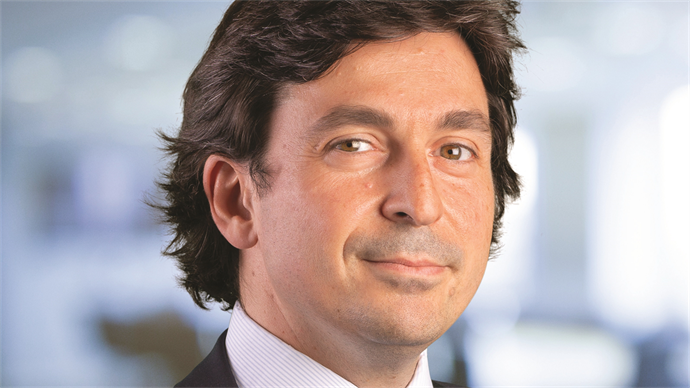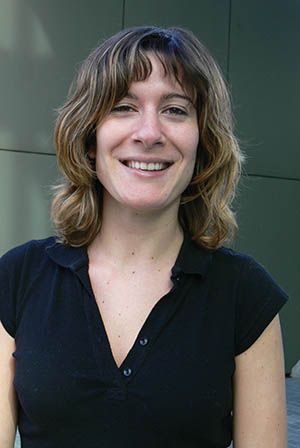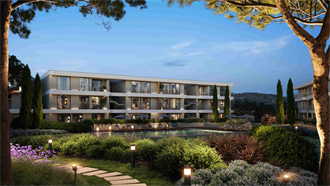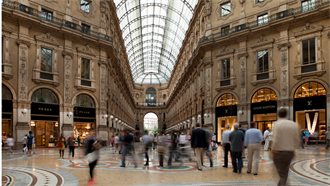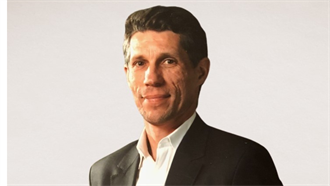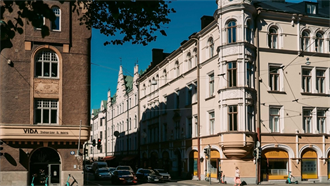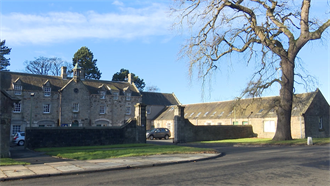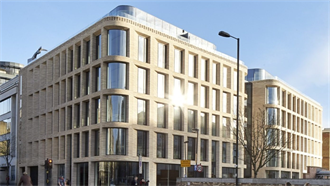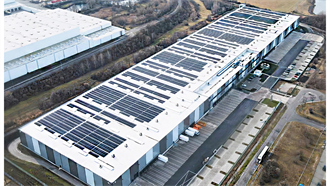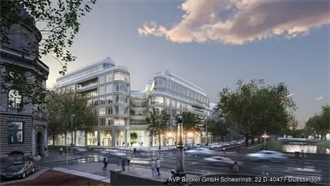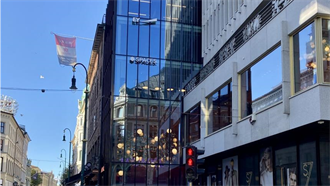In an exclusive interview with PropertyEU, Värde’s European real estate head Francisco Milone offers a rare insight into the company’s business and investment plans.
In the behind-the-scenes world of private equity investing, Värde Partners would seem to be no different to other firms. Its tendency to keep a low profile ties in with the modus operandi of most other private equity players who prefer to shun the limelight. For the most part of its history spanning nearly three decades, publicity-shy Värde has ducked under the radar as it went about investing more than $68 bn (€62.4 bn) across credit, distressed assets, and more recently, real estate.
But a closer look reveals a few characteristics that distinguish the company from its rivals. It was founded in the state of Minnesota, rather than in the usual hotbeds of private equity such as New York, Los Angeles, or Boston; it has an all-cash-based investing approach, rather than using high levels of gearing; and it is one of only a few investment houses which has completed a management transition from first to second generation.
‘We are very much attached to our philosophy and roots,’ says Francisco Milone, a partner at Värde, in an exclusive interview with PropertyEU. ‘Our roots are in credit, our philosophy across the different asset classes has always been the same; buying at a discount and then trying to unlock value.’
Milone works in Värde’s European head office which was opened in London in 2004. A Venezuelan who grew up in Rome - which he describes as ‘the best city in the world’ - he comes across as an open-hearted executive with an easy laugh who talks freely about himself, including his passion for the Roman football team. He joined Värde in 2008 after ‘falling in love with the firm and its partners’.
‘I was working at Goldman Sachs in London on the trading floor but I wanted to become an investor. Because of my job I came across Värde which was not well known as it was not very active on the PR side. I was only 31 years old but two of the firm’s founding partners spent over an hour with me, making the investment business sound so easy. And I knew then I wanted to spend time with them and the company.’ For the past 12 years, Milone has been responsible for different asset classes within the business, moving from restructurings to real estate which has grown to represent a $5 bn portfolio worldwide, including mortgages.
The history
Värde – which is Swedish for value – was established in 1993 in Minneapolis, the largest city in Minnesota and home to the second-largest Swedish community outside of Sweden (also, not by chance, home to the Vikings football team). From the very beginning, the firm has focused on value investing with a focus on the credit side rather than equities, Milone notes. ‘We invest across a number of asset classes – corporate and traded credit, real estate and mortgages and private equity focused on financial institutions. But the common denominator is our value-investing strategy.’
According to Milone, Värde’s investment philosophy differentiates the company from other private equity funds which generally buy at par value, try to reposition the asset in one way or the other and then sell it for a premium, enhancing returns through leverage. ‘Our approach is to acquire assets at a steep discount to intrinsic value, without relying on debt to drive returns, and then try to sell the asset at a premium with relatively low gearing.’
The acquisition of the Boscolo portfolio – later renamed Dedica Anthology – illustrates this strategy. The owners of the Boscolo package consisting of eight luxury hotel properties in Rome, Florence, Venice, Nice, Prague and Budapest, were in breach of covenants on a €320 mln loan provided by 23 banks.
Värde started acquiring the company’s debt from some of the lenders at a discount to face value in 2016, ultimately acquiring 100% of the equity in 2017. It then took a number of steps to transform the business which was re-branded The Dedica Anthology in 2018. ‘At the time we acquired the business it was in severe financial difficulty and facing an uncertain future,’ says Milone. ‘Having appointed a best-in-class management team, together we have rebuilt trust with the company’s financial partners, allowing us to refinance the business and execute an ambitious investment programme.’
Värde secured a €337 mln refinancing for the assets from Blackstone Real Estate Debt Strategies and then put the platform on the market. French listed property giant Covivio, acting through its hotel division, agreed to buy it in late 2019 for €573 mln. Closing of the deal has been postponed to September following the coronavirus outbreak.
Italian strategies
As Värde focuses on distressed situations, its focus for the past few years has been on the Southern European markets. Italy, Spain, Greece and Portugal are all countries where the banking system has been undergoing a restructuring and therefore more companies are under pressure to sell, says Milone. ‘The way we operate is we generally start researching a country, decide it is interesting, we open an office, hire a team, then the next step is to try to build a platform.’
The company opened an office in Italy, which today represents a significant portion of Värde’s $3 bn European portfolio, back in 2014. It identified two main strategies. On the one hand, it focused on non-performing property-backed loans divested by a banking system facing more and more challenging NPE ratio targets. At the same time, the firm targeted the Milanese housing market, which while over-performing compared to the rest of Italy in terms of GDP per capita and household formation, was also plagued by a lack of ‘affordable supply’.
‘We researched the market in Milan and we found out that there was a supply-demand imbalance and a shortage of affordable housing. By affordable I mean houses below €4,000 euro per m2, so houses appropriately priced, for middle-income earners. The imbalance has grown because of the stiff cost of building and the high price of development land.’
For both strategies - NPLs and residential - Värde’s move has been to identify a suitable platform, buy into it and start growing the business. As such, the firm in 2017 took a one-third stake in Guber Banca, an Italian independent NPL servicer with €7.4 bn of assets and last year bought a non-performing loan portfolio with a gross book value of around €734 mln.
The package was originated by 22 Italian banks and comprised more than 1,300 positions. Milone: ‘With non-performing loan portfolios, it is essential to have a good operator who looks at each individual loan and adopts the right strategy. The art of managing a portfolio properly is to have people in your team with the right incentive who make all the right decisions, and there are hundreds of small decisions about hundreds of assets.’ He adds: ‘We have bought around €3 bn of non performing loans together with Guber in the recent past and we believe we have found a great operator.’
Residential play
As for residential, Värde picked developer Borio Mangiarotti as its local partner and last year bought a 20% stake in the business to embark on its most ambitious project to date; the development of the SeiMilano site. Encompassing 300,000 m2 to the south-west of Milan, the masterplan signed by architect Mario Cucinella entails the development of 100,000 m2 of housing, or about 500 units, 30,000 m2 of offices and 10,000 m2 of ancillary retail facilities within a new urban park of over 16 hectares, the second largest in the Milan area.
Representing an investment of around €250 mln, the project is being financed partly in equity and partly with a €113.5 mln loan from local lenders Intesa Sanpaolo and Banco Bpm. ‘We are starting development as well as presales right now, which is exactly what we had planned,’ Milone notes, adding that the group is also looking at new potential investments in the city. ‘We will continue to invest in Milan,’ Milone says, ‘in fact, there are two or three residential projects we are currently looking at. We are happy to develop more homes as we believe that the whole transformation of Milan in light of the Olympic games will create new opportunities for the City.’
Changing industry
Joining Värde at the onset of the financial crisis in 2008, Milone has invested through different asset classes and market cycles and feels the industry has changed somewhat over the past decade. In particular, the market has shifted from a focus on trading during the crisis years to more illiquid strategies overall today, he reckons. ‘I have invested in many asset classes over the years but the common denominator has been loans, restructuring and distress. At the same time the market has moved a lot with on the one hand a lot more regulation on trading, on the other a long period of low interest rates which is making investing more and more difficult.’
Asked where he sees opportunities going forward, Milone says that the European real estate team will continue to focus on Southern Europe and particularly on new developments in Spain and Italy while looking for office acquisitions in Portugal via its Imopólis arm and new purchases in Greece through its Trastor real estate investment platform. Värde will also be entertaining new investments in the UK, where the firm already owns a shared office platform known as BizSpace, he adds. ‘The UK market is getting more and more interesting and we are currently looking to buy a few regional offices for our co-working platform. We are also interested in the retail sector which is experiencing a huge dislocation and growing distress on the corporate side.’
In Italy the firm also expects to be more active on the NPL front. Says Milone: ‘There is likely to be a lot of new NPL generation in the coming years. Also, a majority of the NPLs sold by the banks over the past years are still to be recovered by servicers and investors. This is a good sign for secondary buyers, it presages the start of a secondary market and means non-performing loan portfolios will come up for sale,’ he points out, adding that ‘this process is not going very fast – not as fast as we might expect – but it is still far from being over’.
In Spain, the main priority this year will be bringing the development pipeline to completion. Here, the company is developing both on behalf of a joint venture with bad bank Sareb as well as through its own Vía Célere platform. It expects to deliver roughly 2,500 new units this year, says Milone. ‘When we entered the market seven years ago we realised all of the country’s leading developers had gone bust. The banks had repossessed major land bank portfolios but nobody was there to develop them. At the same time, people wanted to buy new homes and supply was limited.’
Värde first led the restructuring of struggling residential developer Grupo San José, then combined the business with the Vía Célere platform and subsequently acquired the land bank assets of Aelca, making Via Célere one of the largest residential developers in Spain with a gross asset value of over €2.2 bn. Meanwhile, it also signed a joint venture with bad bank Sareb to manage an €800 mln portfolio encompassing some 80,000 residential units. ‘We are in love with residential development in the country. We have built up a fantastic builder and we will be delivering thousands of new units this year.’
COMPANY PROFILE
Founded in Minnesota, US, Värde Partners is a global alternative investment firm with roots in credit and distressed. Founded in 1993, the firm is 100% partner-owned and includes over 100 investment professionals in 13 offices around the globe. It is co-led by co-founder George Hicks and global chief investment officer Ilfryn Carstairs, both co-CEOs, with Hicks planning to transition to an executive chair role in 2022.
Värde has invested more than $68 bn since inception and currently manages over $14 bn on behalf of a global investor base including institutional investors, endowments universities and sovereign wealth funds.
In Europe, Värde’s presence has grown to more than 80 full-time employees across six regional offices – London (the European head office), Athens, Dublin, Madrid, Milan and Luxembourg. The company’s latest global fund - Värde Fund XIII – last year exceeded its $2 bn target raising almost $2.5 bn in equity commitments. The fund has the flexibility to invest in a range of credit and credit-related assets globally across liquid traded credit, special situations, real estate and financial services.
PERSONAL PROFILE
Francisco Milone is one of only 16 partners in the firm and is head of European real estate, based in London. A Venezuelan grown up in Rome, Milone started his career as an associate at Meliorbanca in Milan then joined Goldman Sachs International’s Bank Loans Distressed Investing team in London. He was recruited by Värde in 2008 and has since been investing across a number of asset classes for the firm.
Note: This interview was conducted in February 2020. Views expressed may not reflect the current market environment.

